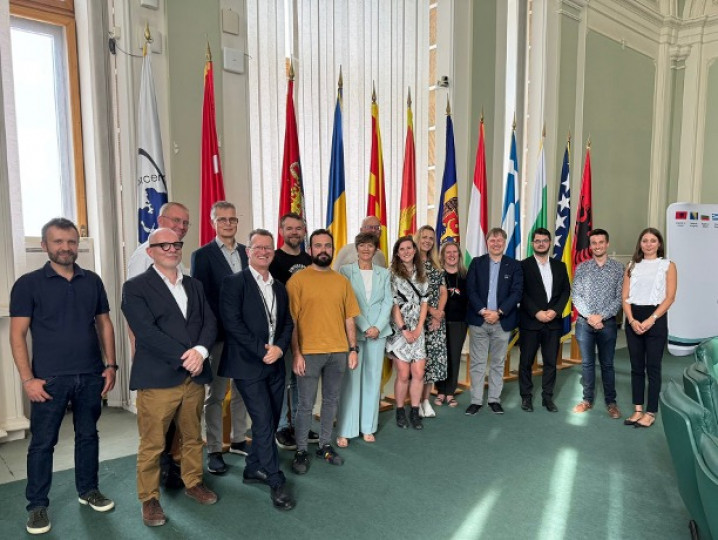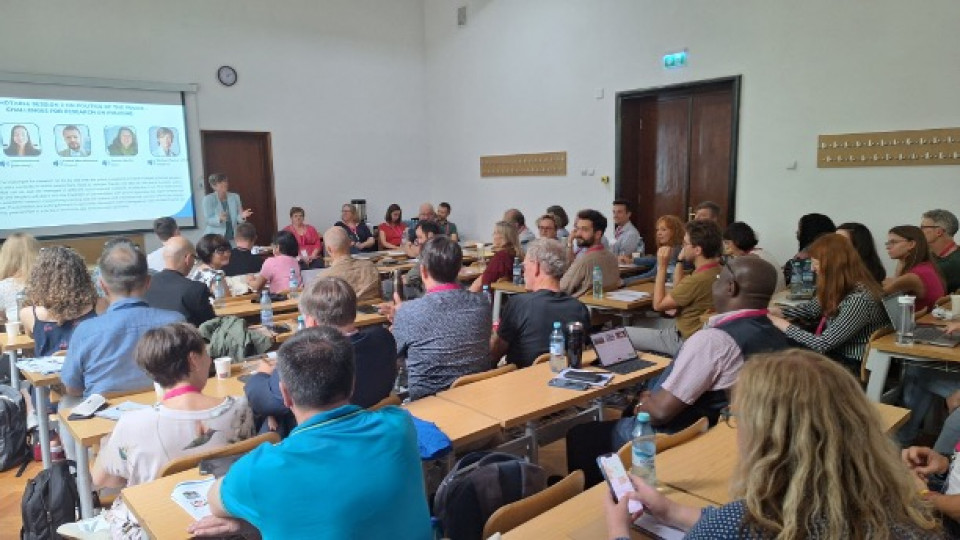Policing Working Group

The Policing Working Group was established at the 8th Annual Conference of the European Society of Criminology in Edinburgh in 2008. Members of the current steering group are:
• Chair & Liaisons: Marleen Easton (Ghent University, Belgium),
• Co-Chair & Early Career Researchers: Larissa Engelmann (University of Leeds, UK),
• Publications & Prizes: Sarah Charman & David Knowles (Portsmouth University, UK),
• Communication: Jasper De Paepe (Leiden Universi- ty, the Netherlands),
• Pracademics: Paul Betts (Westminster University, UK).
The Policing Working Group has grown exponentially over the past five years. In 2023, we welcomed 150 in- dividual presentation submissions, 14 poster submis- sions, and an impressive number of 16 pre-arranged panels, six roundtables, and one author meets critics session. In 2024, we scheduled 118 individual pres- entation submissions arranged into 25 panels, nine poster submissions, and eight pre-arranged panels.
It is by now a tradition that our working group organ- ises a pre-conference event. With a pre-conference day on ‘policing research methodologies’ in 2023, we provided a diverse overview of the topic from different countries and areas of policing research, from visual ethnographies to big data analysis. These presentations underscored the importance of adopting innovative approaches to study the complex and dynamic world of policing. In 2024, we addressed ‘European Chal- lenges in (research on) Policing’. Through keynotes
and multiple panels, we explored the evolving political, social, and research landscape of policing in Europe. These pre-conference events have become a corner- stone for our members, offering in-depth discussions on policing topics, fostering connections with colleagues from around the world and creating a welcoming space for early career researchers before the main conference. We are also grateful to Elsevier for sponsoring our yearly prize-giving event at the pre-conference events, including the Early Career Researcher Prize, Policing Book Prize and Policing Journal Article Prize, respectively sponsored by Palgrave, Routledge and Eleven.

There are three key priorities within our Policing Working Group:
(1) supporting Early Career Researchers, for which we organised a series of webinars in 2024 titled ‘Em- powering Early-Career Researchers in Policing,’ ad- dressing the challenges that early-career researchers face, such as gaining access, managing data, and navigating ethical dilemmas. These sessions provided an open, supportive space for researchers to share experiences, discuss dilemmas, and collaboratively explore strategies for addressing the complexities of policing research. We plan to continue this webinar series in 2025 with additional early career support sessions during the pre-conference events.
(2) building a network of policing researchers in Europe through a group of European liaison re- searchers in the spring of 2024. Currently, there are 14 countries represented (England, Scotland, Ireland, the Netherlands, Spain, France, Germany, Finland, Iceland, Norway, Slovenia, Poland, Sweden and Belgium) with 20 delegates, and the group continues to grow. The aim is to strengthen European collaboration in policing research. Liaisons are a point of contact for their country to facilitate access to academics & practitioners in policing. They aim to join forces to stimulate research on, for, and with the police through publications and research projects.
(3) giving voice to the needs of pracademics in our field of research. To develop this third priority, Paul Betts, a pracademic himself, has recently joined our Board. This will support a more diverse Policing Working Group and ensure that new and emerging academics with important knowledge and experience within policing can join our discussions and we can learn from one another.
To keep our members up to date, we use social media (WhatsApp, X & LinkedIn), and we circulate news- letters & flyers in relation to our activities. An annual webinar has been designed to invite people to join our vibrant community of policing researchers.
